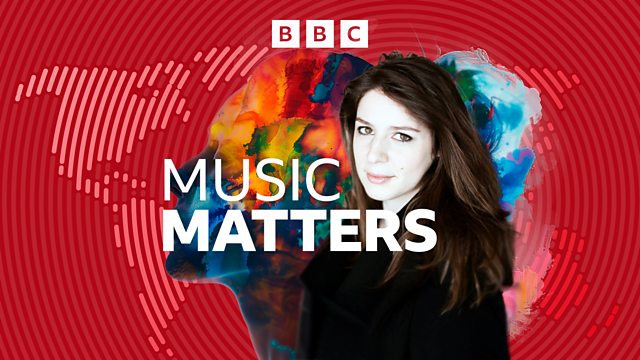
Elisabeth Wiklander and Elizabeth Watts
Elizabeth Watts sits down with musicians who have their own stories to tell about how neurodivergence affects their personal and professional lives.
Neurodivergence is more prevalent among musicians than the general population. Soprano Elizabeth Watts, who has ADHD, explores how neurodiversity influences the lives and creativity of fellow musicians. She is joined by cellist Elisabeth Wiklander, who is autistic, for a candid conversation about how their unique ways of thinking shape their experiences in music and life. Along the way, they share meaningful pieces that reflect their personal journeys.
Elisabeth Wiklander brings music that holds deep personal resonance, including a composition written by her autistic father, and another by the person who helped her realise that she is autistic. She also shares music that evokes her childhood in her homeland, Sweden, and a symphony conducted by Vladimir Jurowski, whose meticulous approach and way of working really resonated with her. Elizabeth Watts also shares two pieces which capture aspects of her experience of ADHD.
Adding a scientific lens to the discussion, Professor Catherine Loveday offers explanations and insights into the relationship between neurodiversity and musical creativity.
A Tandem Production for ÃÛÑ¿´«Ã½ Radio 3
Last on
Music Played
-
![]()
Johann Sebastian Bach
Brandenburg Concerto No 5 in D major, BWV 1050 (1st mvt)
Performer: Jacques Zoon. Performer: Giuliano Carmignola. Performer: Ottavio Dantone. Conductor: Claudio Abbado. Orchestra: Orchestra Mozart.- DG.
-
![]()
Kurt Wiklander
Scherzo Ostinato, No 3 Op 3
Orchestra: Kurt Wiklander.- BIS.
-
![]()
Pyotr Ilyich Tchaikovsky
Symphony No 5 in E minor, Op 64 (4th mvt, 'Finale')
Conductor: Vladimir Jurowski. Orchestra: London Philharmonic Orchestra.- LPO.
-
![]()
Alessandro Scarlatti
Torbido, irato, e nero from Erminia, RosS 374/26 (Cloudy, angry and black)
Singer: Elizabeth Watts. Director: Laurence Cummings. Orchestra: The English Concert.- HARMONIA MUNDI.
-
![]()
Walter Wolff
Walter's Waltz (Live)
Performer: Walter Wolff. Performer: Francesco Angiuli. Performer: Andreas Fryland.- BANDCAMP.
-
![]()
Oskar Lindberg
Symphonic poem (From the Great Forests)
Conductor: Stig Westerberg. Orchestra: Royal Stockholm Philharmonic Orchestra.- Musica Sveciae.
-
![]()
Gustav Mahler
Symphony No 2 in C minor, 'Resurrection' (Aufersteh'n, ja aufersteh'n wirs)
Singer: Petra Lang. Singer: Melanie Diener. Conductor: Riccardo Chailly. Orchestra: Royal Concertgebouw Orchestra.- DECCA.
Broadcast
- Sat 10 May 2025 13:00ÃÛÑ¿´«Ã½ Radio 3
Knock on wood – six stunning wooden concert halls around the world
Steel and concrete can't beat good old wood to produce the best sounds for music.
The evolution of video game music
Tom Service traces the rise of an exciting new genre, from bleeps to responsive scores.
Why music can literally make us lose track of time
Try our psychoacoustic experiment to see how tempo can affect your timekeeping abilities.
Podcast
-
![]()
Music Matters
The stories that matter, the people that matter, the music that matters


